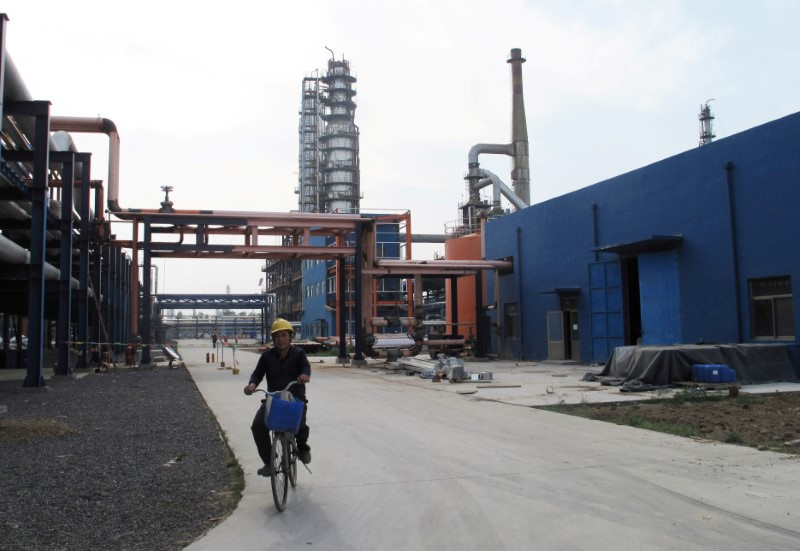By Mohi Narayan and Joyce Lee
NEW DELHI (Reuters) – Petrochemical makers in Europe and Asia are in survival mode as years of capacity building in top market China and high energy costs in Europe have squeezed margins for three years in a row, forcing companies to consolidate.
Here’s a look at the consolidation moves of major manufacturers around the world.
EXXON MOBILE
ExxonMobil (NYSE:) Chemical France announced in April that it would close the Gravenchon steam cracker and chemical production facility this year, adding that the site has lost more than 500 million euros since 2018 and remains uncompetitive.
FORMOSA PETROCHEMICAL
The Taiwanese petrochemical giant has been operating just one of its three naphtha crackers for a year. The company has kept the other two crackers offline due to poor demand and unhealthy margins, spokesman KY Lin said.
The company does not plan to make any new investments in the near term due to challenging market conditions, a company official said.
INEOS
The UK-based company acquired a 50% stake from TotalEnergies (EPA:) in the Naphtachimie, Appryl and Gexaro operations in April, making Ineos the sole owner of the units at Lavera in southern France.
The agreement includes a 720,000 tonnes per annum (tpy) steam cracker, 270,000 tpy aromatics and 300,000 tpy polypropylene production capacity.
LYONDELLBASELL
The US-based plastics raw materials maker said in May it has launched a strategic review of the European assets of two of its business units. The company sold its Bayport, Texas, ethylene oxide unit and related operations to chemicals maker INEOS Oxide in May for $700 million.
MITSUI CHEMICALS
The Japanese company announced in April its decision to close the phenol plant at its Ichihara plant by fiscal year 2026, the company said in a statement.
In October 2024, it will close its polyethylene terephthalate (PET) plant at its Iwakuni-Ohtake Works. In Chiba, the company has reached an agreement with Idemitsu Kosan to consider merging ethylene equipment, according to annual results published in May.
It plans to downsize Omuta Work’s toluene diisocyanate (TDI) plant by fiscal year 2025 and is considering closing the Anegasaki plant by 2027.
PENGERANG PETROCHEMICAL CO (PREFCHEM)
The 50-50 joint venture between Petronas and Saudi Aramco (TADAWUL:) has kept its 1.2 million tonne-per-year naphtha cracker closed since it was closed for maintenance earlier this year. The CEO’s office said they have no update on the cracker restart.
SAUDI BASIC INDUSTRIES CORP (SABIC)
SABIC, 70% owned by oil giant Aramco, announced plans in April to permanently close the No. 3 naphtha-fed cracker at its plant in Geleen, the Netherlands, after routine maintenance at the site.
SHELL
The European energy giant in May sold its refinery and petrochemical assets in Singapore, Asia’s main oil hub, to a joint venture between Indonesian chemicals company Chandra Asri and Swiss miner and commodities trader Glencore (OTC:).
The sale is part of Shell’s (LON:) CEO Wael Sawan’s plan to reduce the company’s carbon footprint and focus its operations on its most profitable activities.
SUMITOMO CHEMICAL

Saudi Aramco has agreed to buy from Japan’s Sumitomo Chemical a 22.5% stake in its petrochemical joint venture Petro Rabigh for $702 million, the companies said in a joint statement on Wednesday.
The deal will reduce Sumitomo Chemical’s stake in the joint venture to 15%, while increasing Aramco’s share to 60%.




















